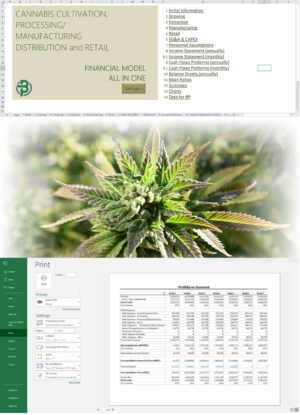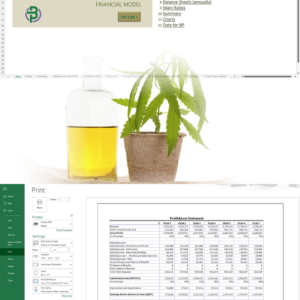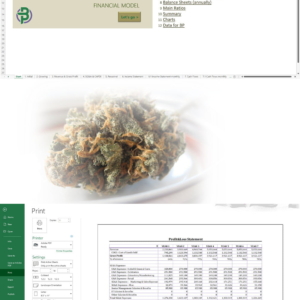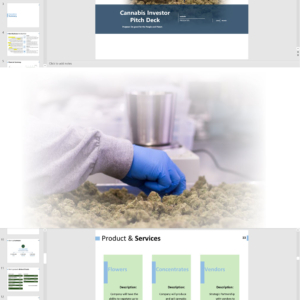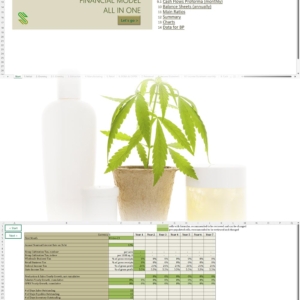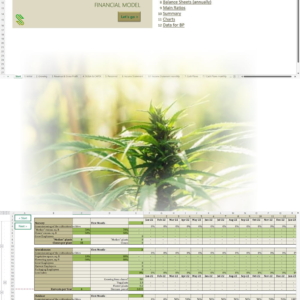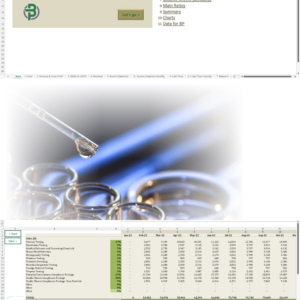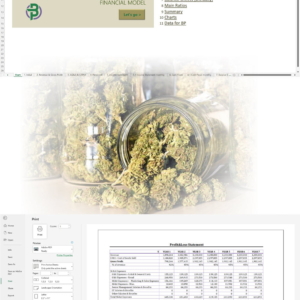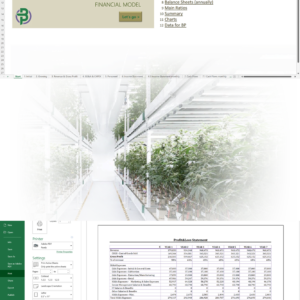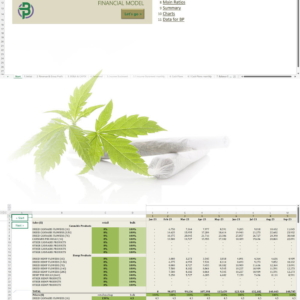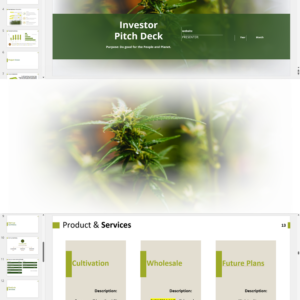- Understand regulatory and legal requirements. Do market research.
Research the laws and regulations governing the medical use of cannabis to learn more about the regulatory requirements for obtaining a license. The Oklahoma Medical Marijuana Authority (OMMA) is the regulatory agency for Oklahoma’s medical marijuana program.
Oklahoma Cannabis Legalization
Oklahoma Question 788, the Medical Oklahoma Cannabis Market Legalization Initiative, was placed on the Oklahoma ballot as an initiated state law on June 26, 2018. The referendum ultimately passed 57% to 43%, making Oklahoma the 30th US state to legalize medical use of cannabis. OMMA is responsible for processing applications for commercial and patient licenses, providing customer service to licensees and applicants, facilitating the rulemaking process based on state laws, enforcing the regulations, and more.
- Decide the type of cannabis business. Choose a location. Check local zoning regulations.
Cannabis Licenses Types available in Oklahoma
“A medical marijuana grower license allows a business to legally grow marijuana for medical purposes in Oklahoma. Licensed growers can only sell to licensed processors, dispensaries and other growers. A transporter license is issued simultaneously with approved grower licenses. The transporter license allows the licensee, through its licensed transporter agents, to transport their own medical marijuana and medical marijuana products to another licensed business.”
| Tier | Indoor, Greenhouse or Light Deprivation | Outdoor | Application fee |
| Tier 1 | Up to 10,000 sq. feet | Up to 2.5 acres | $2,500 |
| Tier 2 | 10,001-20,000 sq. feet | 2.5-5 acres | $5,000 |
| Tier 3 | 20,001-40,000 sq. feet | 5-10 acres | $10,000 |
| Tier 4 | 40,001-60,000 sq. feet | 10-20 acres | $20,000 |
| Tier 5 | 60,001-80,000 sq. feet | 20-30 acres | $30,000 |
| Tier 6 | 80,001-99,999 sq. feet | 30-40 acres | $40,000 |
| Tier 7 | 100,000 sq. feet or more | 40-50 acres | $50,000 + $0.25 per each additional sq. foot (for indoor) |
| Tier 8 | 50 acres or more | $50,000 + $250 for each additional acre |
The annual, nonrefundable license fee shall be based upon the total amount of square feet of canopy or acres harvested, transferred, or sold by the grower during the previous 12 months.
There is also a credit card processing fee, which is 2.25% of the application fee plus $2.
“A medical marijuana processor license allows a business to legally process marijuana for medical purposes in Oklahoma. Licensed processors can sell to licensed dispensaries and other licensed processors. Licensed processors may also process marijuana into a concentrated form for a patient license holder for a fee. Processors will receive either a hazardous processor license or a non-hazardous processor license based on the type of chemicals the processor will be used in the extraction process in accordance with OMMA rules. A commercial transporter license is issued simultaneously with approved processor licenses. The transporter license allows the licensee, through their licensed transporter agents, to transport their own medical marijuana products to another licensed business.”
| Tier | Production volume | Application fee |
| Tier 1 | Up to 10,000 lbs. biomass or up to 100 L of concentrate | $2,500 |
| Tier 2 | 10,001-50,000 lbs. of biomass or 101-350 L of concentrate | $5,000 |
| Tier 3 | 50,001-150,000 lbs. of biomass or 351-650 L of concentrate | $10,000 |
| Tier 4 | 150,001-300,000 lbs. of biomass or 651-1,000 L of concentrate | $15,000 |
| Tier 5 | More than 300,001 lbs. of biomass or 1,001 L of concentrate | $20,000 |
The annual, nonrefundable license fee for a medical marijuana processor license shall be determined based on the previous 12 months of biomass or production or use of concentrate.
There is also a credit card processing fee, which is 2.25% of the application fee plus $2.
“A medical marijuana dispensary license allows a business to legally sell medical marijuana and medical marijuana products, including mature plants and seedlings. Licensed dispensaries can only sell to other licensed dispensaries or patient license holders, caregiver license holders, research license holders, and the parent or legal guardian named on a minor patient’s license. A transporter license is issued simultaneously with approved dispensary licenses. The transporter license allows the licensee, through its licensed transporter agents, to transport their own medical marijuana and medical marijuana products to another licensed business.”
The initial, nonrefundable fee for a medical marijuana dispensary license is $2,500. The annual, nonrefundable license fee for a medical marijuana dispensary license shall be calculated at 10% of the sum of the combined annual state sales tax and state excise (medical marijuana) tax of the dispensary during the previous twelve 12 months. The state sales tax calculation includes only sales tax payable to the State of Oklahoma, not sales tax to local governments.
There is also a credit card processing fee, which is 2.25% of the application fee plus $2.
“A medical marijuana commercial transporter license is a standalone license allowing the licensee, through its licensed transporter agents, to transport medical marijuana and medical marijuana products between other licensed businesses.”
The nonrefundable application fee is $2,500 plus a $58.30 credit card processing fee.
“A medical marijuana commercial transporter agent license is required for agents, employees, officers, or owners of a commercial transporter, grower, processor, or dispensary to transport medical marijuana, medical marijuana concentrate, or medical marijuana products.”
The nonrefundable application fee is $25 plus a $2.61 credit card processing fee.
“A testing laboratory license allows a laboratory testing facility to analyze harvested and processed medical-use marijuana for the presence of harmful contaminants. Licensed labs may charge fees to other commercial licensees for compliance testing.”
The nonrefundable application fee is $20,000 plus a $452.04 credit card processing fee.
“A medical marijuana waste disposal facility license authorizes the licensee to dispose of medical marijuana. The waste disposal facility license also authorizes licensees to transport medical marijuana waste.”
The non-refundable application fee is $5,000 plus a $114.55 credit card processing fee.
“A research facility license authorizes the licensee to grow, cultivate, possess, and transfer to other licensed research facilities and licensed testing laboratories, by sale or donation, marijuana for the limited research purposes approved in the application.”
The nonrefundable application fee is $500 plus a $13.30 credit card processing fee.
“An education facility license authorizes the licensee to provide training and education to people involving the cultivation, growing, harvesting, curing, preparing, packaging or testing of medical marijuana, or the production, manufacture, extraction, processing, packaging or creation of medical-marijuana-infused products or medical marijuana products for the limited education and research purposes approved in the application. Education facility licensees are authorized to transfer, by sale or donation, medical marijuana grown within its operation to licensed research licensees, and to transfer to licensed testing laboratories.”
The nonrefundable application fee is $500 plus a $13.30 credit card processing fee.
In 2022, Oklahoma imposed a two-year moratorium on the issuance of new cultivation, processing and dispensary licenses, beginning August 26, 2022, and House Bill 2095, which was signed into law in May 2023, extends the licensing moratorium until August 1. 2026.
Cannabis Delivery in Oklahoma
Per Section 442:10-5-16(c) of the Oklahoma Medical Marijuana Regulations, no commercial licensee shall allow for or provide the delivery of medical marijuana or medical marijuana products to licensed patients or caregivers.
- Develop a solid cannabis business plan. Secure financing.
Application requirements include a business plan demonstrating a likelihood of success and sufficient business ability and experience on the part of the applicant. A typical cannabis business plan outline includes sections such as Executive Summary, Market Overview, Sales Strategy, Operating Plan, Organizational Structure (+ Diversity Plan) and Financial Plan.
'70% ready to go' business plan templates
We offer a wide range of '70% ready-to-go' cannabis business plan templates that will help you prepare a professional cannabis business plan document supported with expert financials and an investor pitch deck. All our templates are completely open and editable and you can use Word, Excel and PowerPoint to work with them.
- Prepare the required documents. Submit applications. Pay fees.
An applicant and each true party of interest in an applicant shall provide information in a form and manner as prescribed by the Authority, which may include, but is not limited to the following:
- A list of all owners and principal officers of the business applicant and supporting documentation, including, but not limited to: certificate of incorporation, bylaws, articles of organization, operating agreement, certificate of limited partnership, resolution of a board of directors, or other similar documents;
- A certificate of good standing from the Oklahoma Secretary of State issued within 30 days of submission of the application;
- Official documentation from the Secretary of State establishing the applicant’s trade name;
- An electronic copy or digital image in color of a sales tax permit issued by the Oklahoma Tax Commission;
- An Affidavit of Lawful Presence for each owner;
- If a licensed dispensary or grower, proof that the location of the facility is at least 1,000 feet from a public or private school;
- Documents establishing the applicant; and the members, managers, and board members if applicable; and 75% of the commercial applicant’s ownership interests are Oklahoma residents as required in the Oklahoma Medical Marijuana and Patient Protection Act;
- A certificate of compliance on a form prescribed or otherwise authorized by the Authority that is issued by the political subdivision where the licensed premises is to be located;
- All Certificate(s) of Occupancy, Final Inspection Report(s), and Site Plan(s), issued from or approved by the organization, political subdivision, office, or individual responsible for enforcing the requirements of all building and fire codes adopted by the Oklahoma Uniform Building Code Commission;
- Accreditation documentation, including documentation of enrollment in analyte specific proficiency testing results, showing applicants meet the requirements stated in the Regulations;
- Security plan as required under the Regulations;
- If a licensed grower, processor or transporter has added or is seeking to add a publicly traded company as an owner, additional documentation to show the grower, processor, or transporter applicants meet the requirements stated in the Regulations;
- A list of all chemicals a processor will utilize to process marijuana; Safety data sheets for every chemical a processor will utilize to process marijuana; and
- A bond or attestation as required under the Regulations.
- Final approval. Obtain the required licenses.
Once approved, the license will come in the form of a licensed certificate and the business must comply with 63 OK Stat § 420 (2022) and the Oklahoma Administrative Code (OAC) 310:681. It is also necessary to register with the The Oklahoma Bureau of Narcotics and Dangerous Drugs upon obtaining a license from OMMA (63 O.S. §§ 2-101 & 2-302) as required by law before any medical marijuana or marijuana products can be present in business.
- Register your business as an employer and a tax payer.
- Keep track of your ongoing compliance requirements.
Physical security measures, good production practices, packaging, labelling, transport and reporting requirements, taxes and more.
Oklahoma Cannabis Taxes
SQ 788 authorized a 7% excise tax on retail sales of medical marijuana and medical marijuana products – sales from dispensaries to patients. Retail medical marijuana sales are subject to state and local sales tax, too.
Main steps in short
- Understand regulatory and legal requirements. Do market research.
- Decide the type of cannabis business. Choose a location. Check local zoning regulations.
- Develop a solid business plan. Secure financing.
- Prepare the required documents. Submit applications. Pay fees.
- Final approval. Obtain the required licenses.
- Register your business as an employer and a tax payer.
- Keep track of your ongoing compliance requirements.
Cannabis Dispensary Business Plan Sample, Oklahoma
Hemp CBD business plan templates are available at hempcbdbusinessplans.com.




